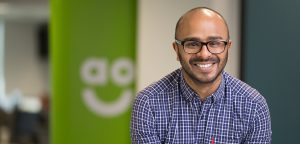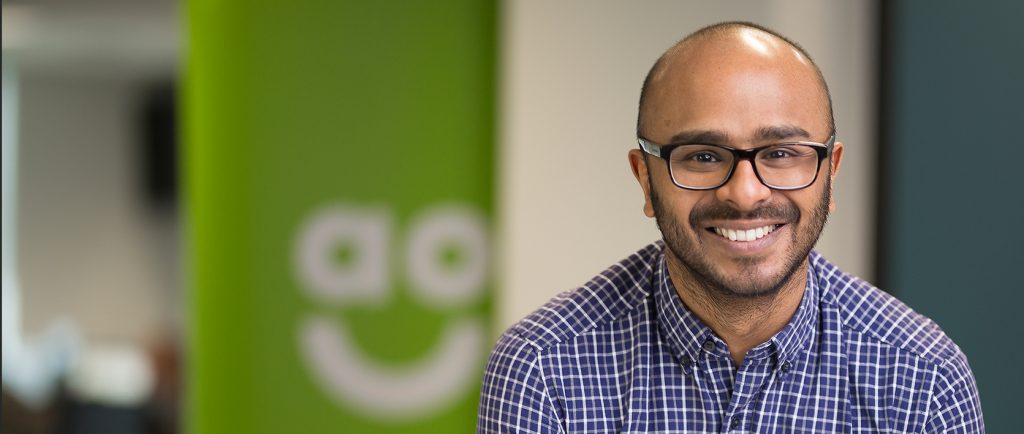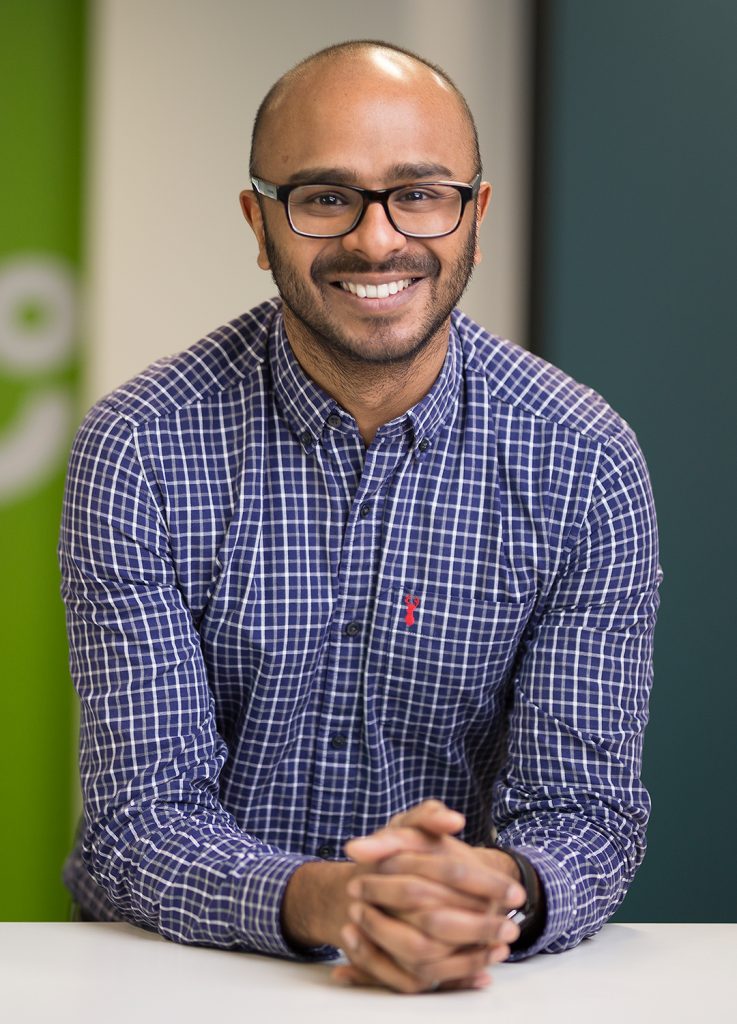As part of ‘Time to Talk Day’ on February 6th, we sat down with Darren, one of our Lead Business Analysts to find out what it’s like being a Mental Health First Aider here at AO.
For me, it’s all about being available. People can come to me and talk about anything they’re struggling with. Just yesterday I took someone from AO for a walk. We talked about some of the issues they had and it’s about giving advice, being a pair of ears and someone they can trust to open up to.
Last year we were asked if we wanted to sign up to become a Mental Health First Aider, so I put myself on the list. Then we went through the training with SoCoach, which probably changed my life.
It was a pretty intense two days. We covered lots of really difficult topics around mental health, like self-harm and suicide, in quite a lot of detail.
It was quite a tough couple of days actually. I remember on day two, I had to take a break from it. The course was really good about it, if you needed to walk out you just had to give them an indication everything was ok, and it was a really safe environment to be in.
SoCoach are incredible. They taught us that while we learn to read and write when we’re at school, we don’ learn to listen. They told us personal stories, which showed that you don’ always know what’s going on with people.
The biggest thing is that it’s ok to ask for help. There’s still a bit of a stigma, but we’re really lucky that we’ve got a culture at AO where people help each other.
Our Mental Health First Aiders are a really important part of that too, just knowing who you can talk to is massive for people.
We’ve been brought up like that. It’s been said plenty of times that blokes don’ ask for help. But I do think we’re different here. At AO, and especially in our Dev teams, you have to ask for help or you don’ meet your goals. Our culture is very good for that stuff.
It’s massively important. There are around 50 AO’ers spread across the business, so it’s great to know that regardless of where you are, there’s always someone to talk to. As part of our training, we were taught to signpost where they could get professional help, which is the most important thing.
Face to face is also a really key aspect. Sometimes it’s all about the non-verbal stuff. You could be saying something on the phone, but the opposite when we speak in person. I don’ think you can beat that kind of interaction so I think we’re lucky.
Show them where to go. There are loads of incredible organisations that give expert advice every day like Mind or The Samaritans.
Keep it confidential. Chances are you’re talking about some personal topics, so keep it between the two of you.
Don’ judge. It’s all about being a pair of ears, so listen and be someone they can open up to.
_______
If you want to know more about SoCoach’s mental health coaching and training, click here to take a look at their website.



